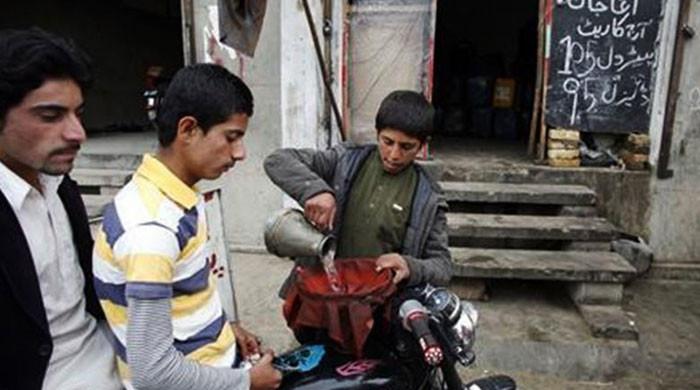Fuel Crisis Grips Balochistan Amidst Iran-Israel Conflict
Balochistan is facing a widespread fuel shortage as a consequence of the ongoing armed conflict between Iran and Israel. The crisis is rapidly unfolding across the province.
From Quetta to Turbat, Panjgur, Gwadar, and Chagai, petrol stations are ceasing operations, causing disruptions to essential supplies and daily life.
In Quetta, over 70% of petrol stations have already shut down, resulting in long queues at the remaining operational stations. Panic is escalating due to the deepening fuel shortages, with concerns that all petrol stations in the city may completely close within 24 hours.
The crisis extends beyond Quetta, with the situation deteriorating rapidly in the Makran and Chagai divisions.
The Balochistan government has indefinitely closed all border crossings with Iran, including crucial trade and fuel routes in Turbat, Panjgur, Gwadar, and Chagai.
This decision, prompted by increasing regional security threats, has severed the province’s main source of Iranian fuel, which typically satisfies Balochistan’s fuel needs.
Authorities in Chagai have confirmed the closure of border crossings at Mashkel, a vital trade route with Iran. Similar to Makran, the border shutdown has led to fuel shortages and disrupted the supply of essential goods in local towns and villages.
The Deputy Commissioner of Gwadar has confirmed the immediate suspension of travel and fuel transport across the Gabad-Kalatuk border, while authorities in Panjgur have fully closed pedestrian and fuel crossings with Iran.
Essential Precautionary Measures
The Panjgur administration stated, “Given the rising security risks and the volatile international situation, these are essential precautionary measures.”
The crisis has been intensifying for weeks. In Quetta, all mini petrol pumps selling Iranian fuel have been closed for the past two weeks following government actions. Similar closures and supply disruptions are now reported in Chagai’s Mashkel region, where communities that depend on cross-border trade are experiencing severe transport issues.
The Balochistan government insists that there is no province-wide fuel crisis. Government spokesperson Shahid Rind dismissed the fuel shortage as “a false narrative spread by petrol smugglers.” He noted that Iranian petrol stations are safety hazards, citing 28 fuel-related accidents in Quetta in the past month, including incidents on Airport Road and in the Hazar Ganji area.
Rind stated, “These so-called shortages are being exaggerated by those who want to lift the ban on smuggled Iranian fuel,” adding that strict measures are being taken to ensure the supply of legal petrol through registered pumps.
Petrol stations found hoarding or denying service will face immediate legal repercussions, he cautioned.
Reports from the ground indicate a significantly different situation. In cities, border towns, and remote areas across the province, including Quetta, Gwadar, Panjgur, Turbat, and Chagai, petrol pumps have run out of fuel, long lines persist, and there are growing fears that the fuel shortage could bring the entire province to a standstill.
The escalating international crisis between Iran and Israel is directly impacting Balochistan, disrupting its streets, markets, and borders.
Local administrations in Gwadar, Panjgur, and Chagai have urged residents to limit unnecessary travel and cooperate fully with authorities during this critical period. Officials have indicated that the cross-border restrictions will remain in effect until the security situation stabilizes.
As Balochistan prepares for worsening fuel shortages, stricter border controls, and increasing panic, its residents are facing strict security measures, economic disruptions, and a dwindling supply of essential goods.
Amid the evolving circumstances in Balochistan, Federal Minister for Petroleum Ali Pervaiz Malik has refuted claims regarding a petroleum shortage in the country.
The minister affirmed that Pakistan possesses ample reserves of petroleum products.



Comments (0)
No comments yet. Be the first to comment!
Leave a Comment